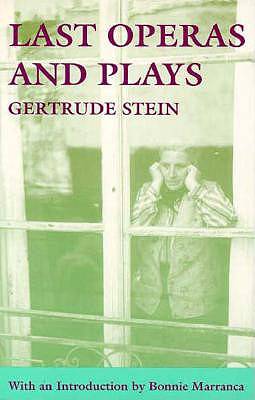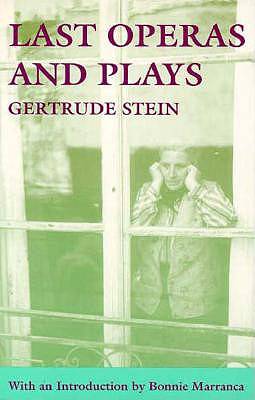
- Retrait gratuit dans votre magasin Club
- 7.000.000 titres dans notre catalogue
- Payer en toute sécurité
- Toujours un magasin près de chez vous
- Retrait gratuit dans votre magasin Club
- 7.000.0000 titres dans notre catalogue
- Payer en toute sécurité
- Toujours un magasin près de chez vous
Description
"When I see a thing it is not a play for me, but when I write something that somebody else can see then it is a play for me." --Gertrude Stein
In the more than seventy-five plats Gertrude Stein wrote between 1913 and 1946, she envisioned a new dramaturgy, beginning with her pictorial conception of a play as a landscape. She drew into her plays the daily flow of life around her--including the natural world--and turned cities, villages, parts of the dramatic structure, and even her own friends into characters. She made punctuation and typography part of her compositional style and chose words for their joyful impact as sound andwordplay. For Strin, the writing process itself was always important in delevoping the "continuous present" at the heart of her work.
Long out of print, Last Opera and Plays again makes available many of Stein's most important and most-produced works. As a special feature, it also included her thought-provoking essay "Plays," in which she reflects on the experience in the theater of seeing and hearing, and on emotion and time. "Now nearly a half century after her deathe," writes Bonnie Marranca in her introduction, "it is indisputable that Gertrude Stein is the great American modernist mind. No American author has been more influential for more generations of artists in the worlds of theater, dance, music, poetry, painting, and fiction."
Spécifications
Parties prenantes
- Auteur(s) :
- Editeur:
Contenu
- Nombre de pages :
- 536
- Langue:
- Anglais
- Collection :
Caractéristiques
- EAN:
- 9780801849855
- Date de parution :
- 22-05-95
- Format:
- Livre broché
- Format numérique:
- Trade paperback (VS)
- Dimensions :
- 140 mm x 213 mm
- Poids :
- 607 g

Les avis
Nous publions uniquement les avis qui respectent les conditions requises. Consultez nos conditions pour les avis.






